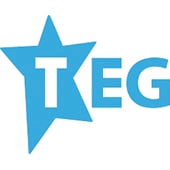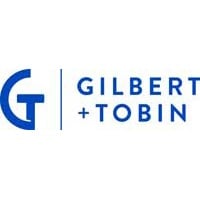

Head of legal | TEG





James Nguyen
Head of legal | TEG
The acquisition of Ticketworld in the Philippines, the launch of TEG Ticketing Asia business in Singapore, the launch of Ticketek Marketplace primary and secondary ticket resale platform, successful tours including Eminem, Katy Perry, Hugh Jackman, Bon Jovi, Michael Buble, USA vs Boomers basketball game, Jay Chou, JJ Lin, Keith Urban and Tim McGraw. In addition, the negotiation of exclusive ticketing service agreements for a number of iconic venues throughout Australia.
Care about their business and understand the role that you play in the company’s strategic objectives. You’re an in-house counsel because you understand that relationships underpin just about every successful venture and like getting your hands dirty. Nothing breeds camaraderie like when your business partners feel like you’re in the trenches with them. You may not always give “yes” answers but at least they’ll be “no, but” answers.
Jira, as customised for my team, as a means to manage oversight on workflow. This was tech which was already being utilised by our tech teams so we used this existing technology and customised it to our needs.
The rise of new law 2.0 and how it will change up the value proposition from traditional law firms to enterprises.
Horses for courses in terms of firm selection for a particular job. Also, relationships are key: if there is one relationship partner who is responsible for all the work done by a firm, regardless of jurisdiction or practice group then it increases the accountability.
I hired my trusty second-in-command straight from private practice. She’s bright, driven, conscientious, a lovely human being and I haven’t regretted my decision once. However, a big issue which she’s grappled with in the transition is the move from being a revenue generating employee to part of a cost centre. With no utilisation rates or billables with which she can point to the scoreboard as a metric for performance, how is she performing? Often with in-house counsel, the lack of negative feedback from the business is a measure that all is well on the legal front. It got me thinking though, apart from ensuring that the business is colouring within the lines, what does success look like; especially in those quiet hours when everyone else has left the office?
Cultivating trust is the answer I’ve landed on. If trust is cultivated within your own teams it means you trust your troops to get the job done, in the best way they can. That’s why you choose them in the first place. We lawyers are lucky that in most cases, we’re quite diligent by nature/nurture. Trust them to succeed by investing in them and you’ll earn their trust that you will back them when they make a call and teach them when they make mistakes. Do that and they’ll follow you to the gates of hell itself.
In cultivating trust to form a solid team unit, you can then focus on trust with your internal stakeholders. If trust is cultivated, they will trust you to get the legal work right, and to provide a practical commercial outcome for them to do their own job. That way, you can play your part in helping facilitate “business velocity” and allow the business to achieve its strategic objectives. In turn, you can trust your internal stakeholders to come to you early with their issues, before they become problems. They see you as a proper business partner.
From the internal stakeholders, expand your sphere of influence to your external service providers. Trust here is that you know they will put your best interest first in their service delivery to meet your objectives. In turn, they’ll trust you to pay your bills!
Cultivating trust with your external parties means acting with integrity in a mutual way. That way, they can be trusted to keep to their word as much as you can be trusted to keep to yours. Business interactions within industry are often repeated games, you can only burn your bridges so many times before you find people simply won’t play with you anymore.
I believe that in cultivating trust through these many layers of interactions, we as a profession will cultivate trust within the wider community. Public perception of lawyers is often anecdotally poor (quick! Tell me your favourite lawyer joke). As a collective, when we cultivate trust in our interactions, we preserve the nobility and honour of our profession as trusted counsel and one of the original traditional professions.
Finally, but probably most importantly, in cultivating trust around us, perhaps we will learn to trust in ourselves and our skillset. It’s no secret that law as a profession is susceptible to mental health issues at a personal level. Long hours, pressing deadlines, more with less, risk managers who are always on the lookout for where things can go wrong, costs centres who aren’t making money for the company: the pressure points can mount multiple fronts on the individual. Often, we believe in ourselves a heck of a lot less than those around us. And yet, perhaps if we’re working towards cultivating trust around us, we can learn to trust in ourselves and what we’re trying to achieve in those quiet hours.